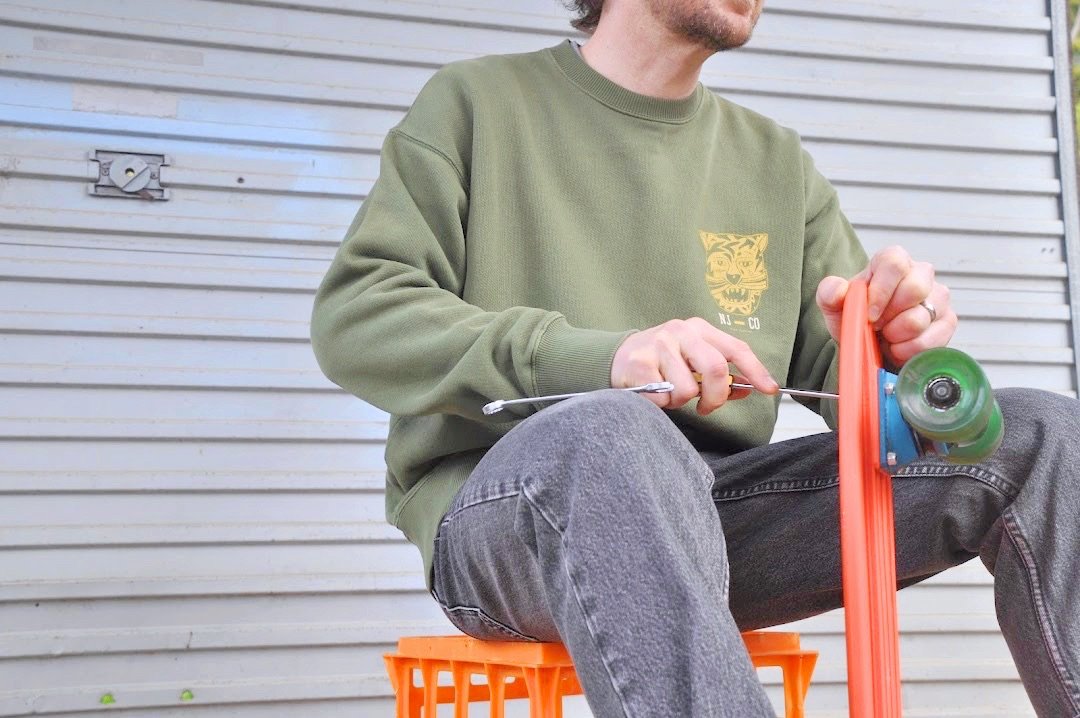8 Brands That Respect Your Right to Repair
We gotta fight … for our right … to reeeepair! Planned obsolescence, which sees so much go to waste, has got to go, and this can be done by supporting the repair movement, using the services of menders and repair cafes, and buying products from brands that fix their product and offer lifetime warranty.
Jump to:
Many items that used to and should last a lifetime are now designed and made to be disposable - kitchen appliances like cheap kettles and toasters, fast fashion, and fast furniture don’t last long before breaking, unravelling or collapsing and ending up in hard rubbish, either not being repairable (glued together so you can’t even get inside or made from brittle material) or not worth repairing (cheaper to simply buy a new one).
Does this go against our rights? Do we have a right to repair what we purchase? What can we do as individuals to create a culture of repair in our communities? Who sees that we need to move to a circular economy and will help us ensure that our purchases can be and are repaired and reused again and again?
The Right To Repair Movement
Supporters of the right to repair movement include third-party repairers, for instance of phones and cars, and buyers, including those wanting to be able to do repairs themselves, notably motorists and farmers, and environmentalists wanting to tackle our waste crisis and for people and the planet to be put before profit.
Third-party repairers should be to repair products for customers, and consumers should not be forced to upgrade to the newest model every time a part of their product or device breaks. By denying consumers the ability to repair their goods, manufacturers of ‘smart’ goods are challenging, and even undermining, the very notion of physical ownership according to US Professor Aaron Perzanowski.
Twenty US States currently have proposed Right to Repair legislation, with some focusing on broad consumable and others on farm equipment and cars (these are being challenged in court by companies such as Apple, Microsoft and Dyson). Learn more about and get involved in the fight to protect repair rights and the definition of ownership in the US here.
In Europe, an EU directive now requires manufacturers to design products that minimise waste, save energy, are easier to repair and ultimately contribute to a sustainable circular economy, and manufacturers will have to guarantee spare parts for 10 years for a range of white goods and lighting.
In Australia, the Bower Reuse & Repair Centre is pushing for a consumer right to repair to be established and enshrined in legislation, arguing that a more sustainable future is based on a strong circular economy and that a central element of a circular economy is the right to repair essential household and personal items.
Good news for the movement in Australia is that the Australian Government’s Productivity Commission has announced an Inquiry into the ‘Right to Repair’ and a draft report is expected to be released soon.
Actions You Can Take to Help Create a Culture of Mending & Fixing
Until the right to repair is recognised and legislated, as individuals we can help create a culture of repair in our communities by:
seeking out and buying from brands and businesses that offer replacement parts and repairs,
learning how to repair and mend items ourselves, from electrical to sewing, and sharing these new skills with other,
making use of local menders and repair cafes to repair items that we aren’t confident to or would prefer not to repair ourselves,
start a repair cafe in your community if it doesn’t have one, and
advocate for the right to repair, protest against and don’t support planned obsolescence, and tell companies you want spare parts and to be able to fix their product.
Instead of binning something, always consider if it could be repaired first. Could the broken or missing part be replaced? Could you try mending it yourself? Could a small business in your local area or the company you bought it from fix it?
For instance, when your beeswax wraps are no longer holding their shape, you can easily just buy more beeswax and rewax them (here’s a how to), when your blender motor blows up, buy a new motor instead of a whole new blender, and when your clothing has a sign of obvious wear, take the opportunity to learn a new mending skill that will see you wearing all your wardrobe favourites long into the future.
An incredible new zero waste product that can help fix a lot of things is the mouldable reusable FixIt Stick. This UK product is made from a non-toxic and compostable bioplastic and it can be moulded to strengthen, repair and revive many things. The stick is heated, which causes it to soften, and it can then be moulded to surround, add to or adapt whatever needs fixing, for instance create a new zip pull. It can be re-heated and remoulded as many times as you like! More info here.
Find brilliant books on repairing like The Repair Shop : A Make Do and Mend Handbook, Modern Mending by Erin Lewis-Fitzgerald, and Loved Clothes Last by Orsola de Castro, here or get a masters in mending at the Fixing Fashion academy (it’s free, open-source information!).
Etsy is an excellent place to find locally curated mending kits and Kintsugi repair kits (the art of classic Japanese restoration of broken objects).
Find a local repair cafe (and other repairing and sharing community initiatives) here.
8 Brands That Respect Your Right To Repair
The brands listed below either offer replacement parts for damaged or lost bits and pieces or offer repair and/or reuse services for their product, ensuring it can be repaired and returned or reused.
Cheeki
You can buy replacement parts for Cheeki’s reusable water bottles and coffee mugs and cups like lids if they get damaged or lost.
Nudie Jeans
Nudie Jeans will repair every pair of its jeans forever. It offers lifetime repair on every pair, with repair shops and partners located in Australia, Thailand, Japan, Indonesia, North America and all over Europe, countries, as well as free repair kits if there isn’t one near you, and reuse any old pairs of Nudie jeans no longer wanted for its Reuse range.
Biochef
BioChef appliances are designed and built to last, with some having a lifetime warranty. They are made in a way that makes repair and service easy. Replacement parts are also available to reduce waste and ensure continued use of working parts.
Zorali
Zorali adopts closed loop thinking in everything it does, ensuring everything it makes can keep going ‘round and ‘round through repairs, resales and recycling. It repairs any damage done to its apparel due to wear and tear at a reasonable charge and covers the cost of return shipping.
Go Green
Go Green sells sets of replacement silicone seals for its reusable lunch boxes, allowing you to repair and replace them to ensure your lunch stays fresh and leak free and to enable you to get more life out of them and to avoid sending them to landfill.
Patagonia
Patagonia will repair all of its gear covered by its Ironclad Guarantee free of charge. If not covered by this guarantee, it will still repair damage due to wear and tear for a reasonable amount. It also has Do-it-yourself Repair Tutorials that provide step-by-step instructions for repairing it yourself.
Citizen Wolf
Citizen Wolf offers free repairs for life. You only pay for shipping. Small holes are darned, while rips and tears are patched.
Beekeeper Parade
Beekeeper Parade will happily repair its backpacks and bumbags, which are made from textile waste, for a small fee.
*this post contains a few affiliate links. If you buy something using one of these links we may earn a small amount. To learn more, see our disclosure policy. We maintain this site in our free time and support in any way, shape or form means a lot and helps us keep it running, whether it is using an affiliate link when investing in something, sharing our content, or buying us a coffee on Ko-fi.



